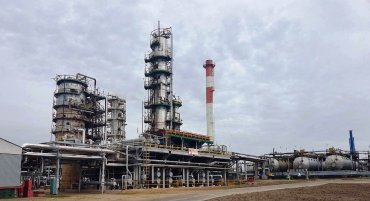Russias historic Mendeleev fuel refinery and lubricant plant resumed operations last month after a two-year production halt, and the embattled enterprise said it has bold plans for the future, including rerefining.
Oleg Krasnonos, general director of Konstantinovsky, Yaroslavl region-based Mendeleev refinery, said that the refinery is getting ready to produce rerefined base oils and to restart its finished lubricant production line.
One of the main features of the revived refinery will be production of base oils by processing waste oils that we plan to collect all over Russia from different sources, Krasnonos said in a recent Yaroslav regional government news release. The rerefining facility is scheduled to open in 2018, he said, without giving a specific timeline and adding that the refinery is getting ready to start soon production of naphtha, marine fuel, fuel oil and other petrochemical products
The Mendeleev refinerys creditor, Credit Bank of Moscow, which controls 88.7 percent of the refinerys shares, pledged to revive the refining facility through a 4.5 billion rubles (U.S. $78 million) investment bid. Bank officials and representatives of the Yaroslavl oblast government signed a contract to modernize the refinery and continue the companys social and environmental programs at the St. Petersburg International Economic Forum in June.
The refinery is operated by a workforce of 411. It was very important for us to restart the company and to repay the outstanding debts towards the employees salaries, said Dmitry Mironov, vice-governor of the Yaroslavl region.
Built in 1879, the Mendeleev refinery is the oldest in Russia and probably the first lubricant manufacturer established in the country.
Russian oil major Slavneft acquired the refinery in 1995 and operated it until 2012, when control of the facility was sold to Moscow-based Neftgazsbyt. Neftgazsbyt, Mendeleev Group and others later increased their holding and pledged a $2 billion revamp, but the plan never materialized.
The operators halted operations in late 2015 due to raw material shortages, and then filed for bankruptcy in February 2016, which led to Credit Bank assuming the majority of shares.
However, the promised modernization did not happen.
In 2015, the refinerys overall crude oil refining capacity was reduced to 192,000 tons, down from 570,000 tons the year before. The refinerys total capacity is 700,000 t/y.
Photo Courtesy Yaroslavl Regional Government
